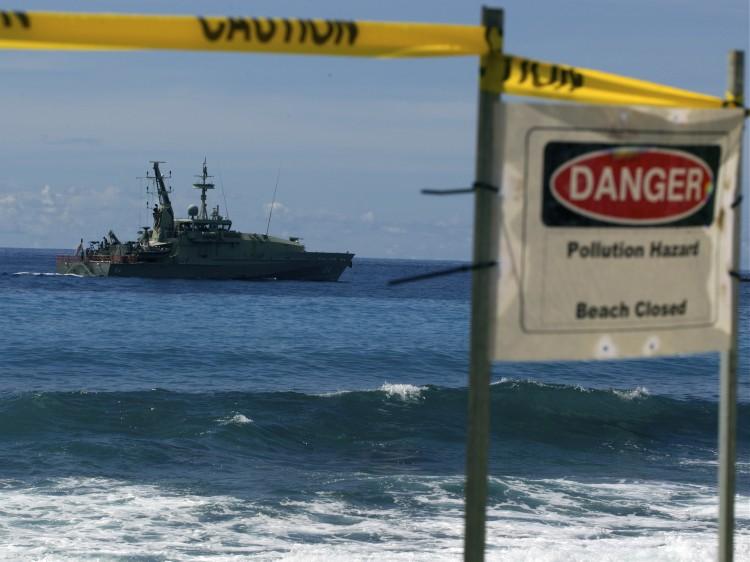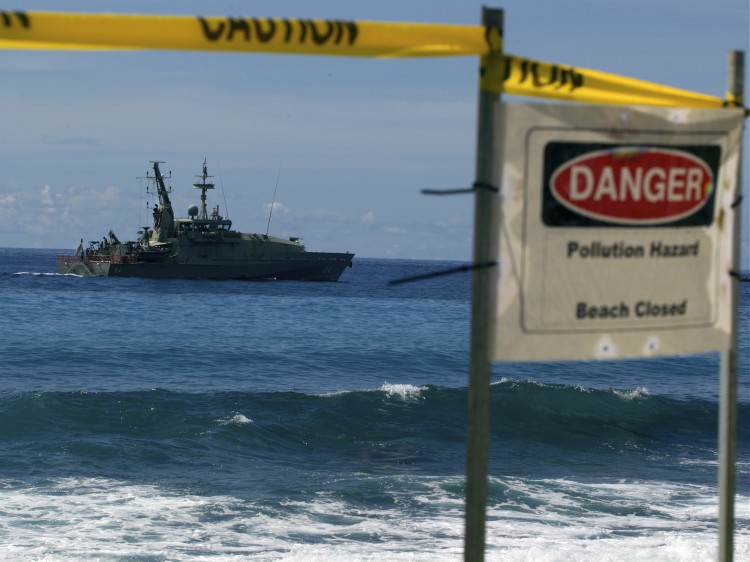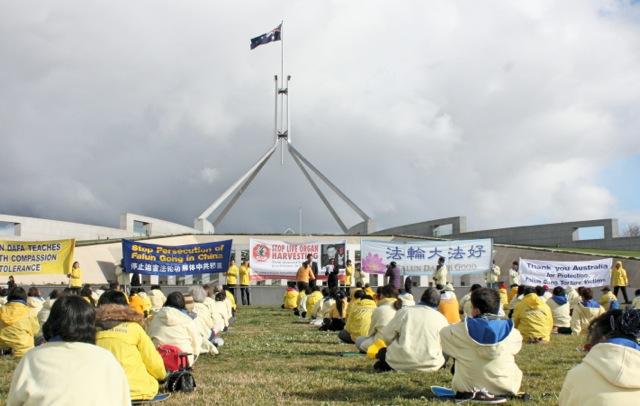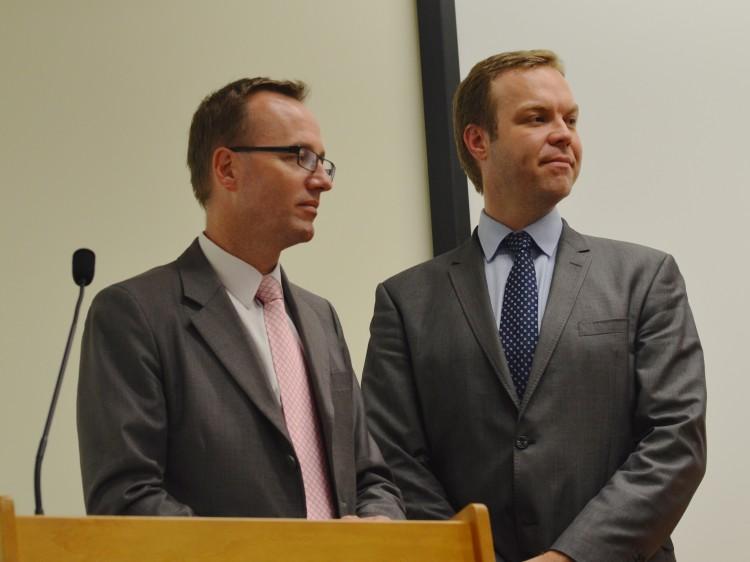Chinese Asylum Seekers to Stay in Australia
Eight Falun Gong practitioners and two other Chinese asylum-seekers had a closed-door meeting in Darwin with immigration officials today, as they tossed up whether to continue on a dangerous voyage to New Zealand or stay in Australia.
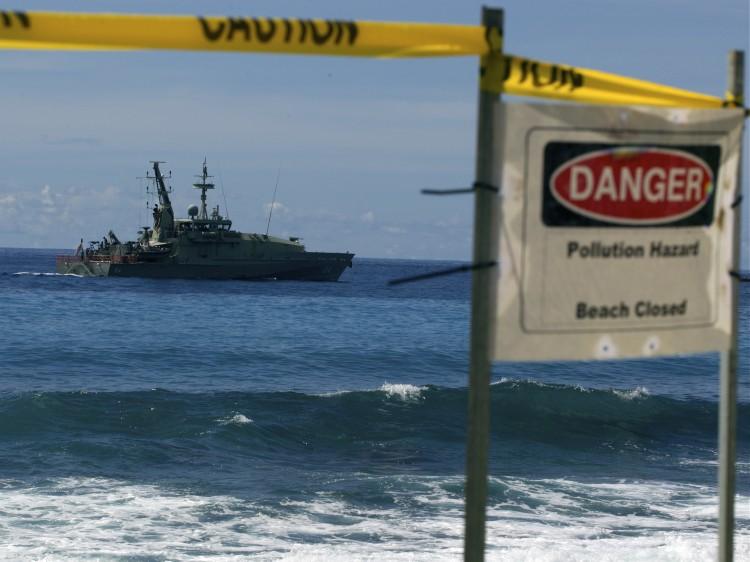
An Australian navy boat cruises by Christmas Island on Feb. 29. A boatload of asylum seekers from China decided to seek refugee status in Australia rather than attempt the dangerous journey onto New Zealand. Paula Bronstein/Getty Images
|Updated:
